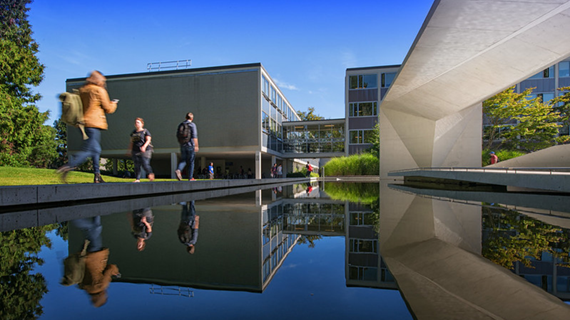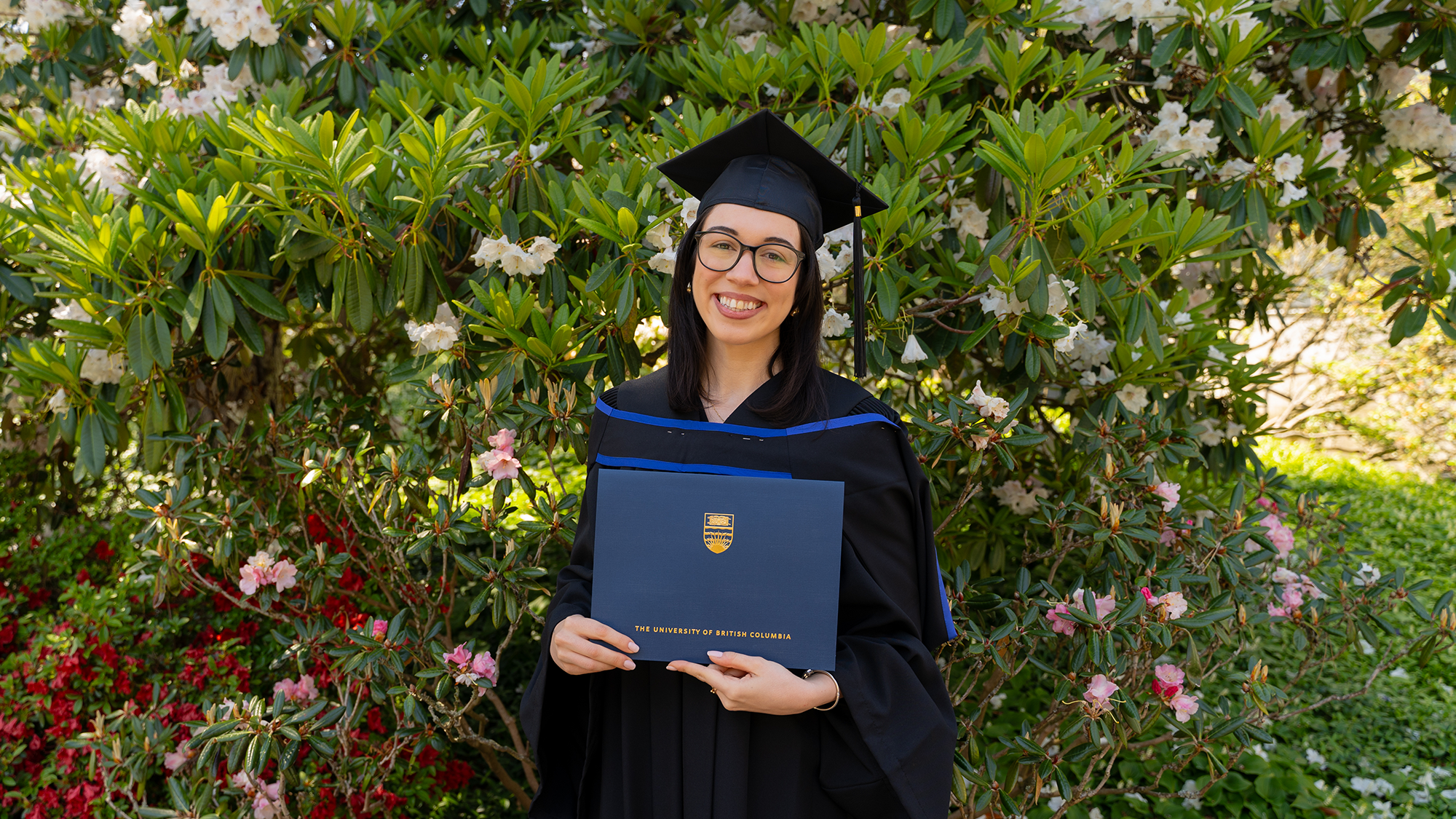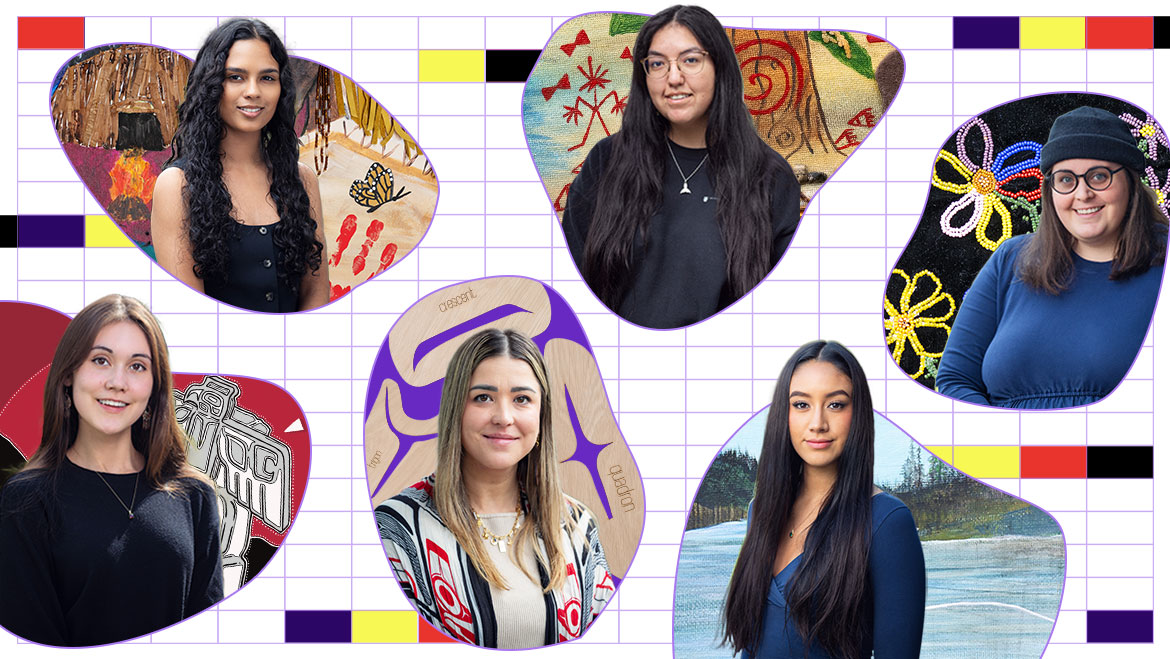

Our Arts faculty members are dishing out some serious knowledge on fascinating topics, including personality traits, queer nightlife, and Canada’s divorce rates. Stay tuned for more intriguing insights from our brilliant faculty members!
Centre for Migration Studies
How events overseas can impact Canada’s immigration patterns | Dr. Antje Ellermann and Postdoctoral fellow Dr. Sandra Schinnerl discusses the measures designed to make Canada more attractive to international students led to a large increase in international students. (The Globe and Mail; subscription required)
Department of Anthropology
How Viking-age hunters took down the biggest animal on earth | Dr. Camilla Speller comments DNA analysis and spectroscopy have helped change our knowledge of past human-whale relations, as well as our understanding of the diversity of whales that historical humans hunted. (Hakai Magazine)
Department of Geography
The true cost of critical minerals | Dr. Jessica Dempsey and her colleagues stressed the importance of safeguarding habitats and respecting Indigenous rights as Canada pursues mineral extraction. (National Observer)
Wildfire survey hopes to clear the air in Whistler | Dr. Adeniyi Asiyanbi talks about his study on the shared responsibility for wildfires between citizens and wildfire managers in Whistler. (Pique NewsMagazine)
One in 10 Canadian seniors working out of need: study | Dr. Carlos Teixeira said most recent immigrants are unable to find jobs that correspond to their levels of education, which leaves many needing to work well past traditional retirement age. (Vancouver Sun)
Department of Philosophy
Thinking about polyamory? You’re not the only one | Dr. Carrie Jenkins wrote about dating trends among young people. (The Conversation)
What science forgets | Dr. Evan Thompson and co-authors discussed their new book, The Blind Spot: Why Science Cannot Ignore Human Experience, which examines the relationship between human experience and science. (Nautilus)
Department of Political Science
Pierre Poilievre aims to turn B.C. coast blue at NDP’s expense | Dr. Stewart Prest commented on the Conservative Party’s attempt to win seats on Vancouver Island. (National Observer)
Historic Haida Nation agreement shows the world how to uphold Indigenous rights | Dr. Sheryl Lightfoot wrote about the importance of the agreement between Haida Nation and the B.C. government which recognizes the Indigenous nation’s jurisdiction over its traditional territory. (The Conversation)
Former B.C. premiers join in calls for a right-of-centre party merger | Dr. Gerald Baier and lecturer Dr. Stewart Prest commented on a potential merger between the Conservative Party of B.C. and B.C. United. (CTV News)
Pierre Poilievre calls for suspension of federal gasoline taxes this summer | Dr. Kathryn Harrison said a reduction in taxes on gasoline will not help the cost of living crisis. (Radio Canada French)
PoCo Mayor Brad West dismisses, questions report on leading right-wing merger | Dr. Stewart Prest said Port Coquitlam Mayor Brad West’s popularity stems from his ability to operate in an “open space” and not be restricted by a political party. (Business in Vancouver)
Premier targets rivals’ merger rumours as B.C. election nears | Dr. Gerald Baier commented on B.C.’s partisan politics. (CBC News)
3 theories for America’s anti-immigrant shift | Dr. Matthew Wright suggested that the pandemic-era rise in crime and the Biden-era growth in border-crossing attempts could be driving the increase in anti-immigration sentiment in the U.S. (Vox)
As Brenda Locke’s policing losses mount, mandate argument weakens | Dr. Gerald Baier commented on the police transition in Surrey. (CBC The Early Edition)
Department of Psychology
What makes rational people believe irrational things? | Dr. Delroy Paulhus conducts research on personality traits. (The Globe and Mail; subscription required)
Does what we do really matter? | Dr. Jiaying Zhao highlighted the impact of individual choices and social reinforcement on climate change as a collective effort. (Outrage and Optimism Podcast)
As the action heats up between the Canucks and Oilers, so does the betting | Dr. Luke Clarke said gambling ads during NHL playoff games ca be triggering for people with gambling problems and are contributing to the normalization of gambling in sports. (Vancouver Sun)
What is thought and how does thinking manifest in the brain? | Dr. Kalina Christoff discussed the concept of human thought. (New Scientist; subscription required)
Why in-person friendships are better for health than virtual pals | Dr. Eric Kim led a study which found that having face-to-face contact with friends at least once per week was a strong predictor of better physical and mental health. (The Washington Post; subscription only)
Department of Sociology
Long live queer nightlife: How the closing of gay bars sparked a revolution | Dr. Amin Ghaziani’s new book explores how queer, trans and racial minorities are replacing traditional nightlife with radically inclusive parties. (Queerty)
Despite all the shouting, the opioid crisis continues to defy simple answers | Dr. Lindsey Richardson said it’s hard to determine whether decriminalization has contributed to an increase in public drug use in B.C., as opposed to broader social forces like poverty or a lack of affordable housing. (CBC Vancouver)
Canada’s divorce rate is the lowest in 50 years, but fewer people are getting married at all | According to Dr. Yue Qian, people with higher education tend to marry more and divorce less. Consequently, those who are at a higher risk of divorce are choosing not to get married. (CBC News)
Here’s what sociologists want you to know about teen suicide | Dr. Seth Abrutyn co-authored a book, Life Under Pressure: The Social Roots of Youth Suicide and What to Do About Them, which shares insights on how to prevent youth suicide, based on years of field work in a small U.S. community. (Vox)
How has motherhood changed over time? | Dr. Sylvia Fuller discussed how motherhood has changed over time in Canada. (CBC News Vancouver)
3 B.C. school districts to launch fully integrated, daylong child care | Dr. Sylvia Fuller said she’s glad to see the government put money into daylong child care. (CBC News)
Celebrity blockout is ‘clever’ but may lack focus, say experts | Dr. Catherine Corrigall-Brown said that online social movements are a great way for young people, who can’t vote yet, to make an impact. (CBC Kids News)
Pierre Poilievre says Justin Trudeau legalized hard drugs in British Columbia. Is that true? | Dr. Lindsey Richardson commented on drug decriminalization policy in B.C. (Toronto Star)
Single people are fed up with dating apps and returning to the real world to meet their match | Dr. Yue Qian said online dating can be taxing for racialized users, particularly Asian men and Black women. (The Globe and Mail)
School of Creative Writing
Cree writer Billy-Ray Belcourt delivers an instinctive, liberating short story collection | Dr. Billy-Ray Belcourt (Driftpile Cree Nation) discussed his new book, Coexistence, which explores Indigenous love, loss, queerness and hope. (Vancouver Sun)
School of Economics
As B.C. again increases minimum wage, who are the winners and losers? | Media mentioned a 2015 study by Dr. David Green which debunked claims that increases in the minimum wage would lead to massive job losses. (The Province)
School of Journalism, Writing, and Media
Land Values: Step into the winding debate around stair restrictions in B.C. buildings | Dr. Frances Bula wrote about staircase requirements in apartment buildings. (BC Business)
School of Public Policy and Global Affairs
Can floating nuclear power plants help solve Northern Canada’s energy woes? | Dr. M.V. Ramana said the cost of power from small nuclear reactors could be as much as 10 times higher than diesel. (The Globe and Mail; subscription required)
Saskatchewan’s nuclear agreement with Alberta | Dr. M.V. Ramana believes that the construction of small modular reactors in Saskatchewan is unlikely in the near future. (ICI Saskatchewan)
RCMP boss says Criminal Code should change to address threats against politicians | Dr. Chris Tenove, from the Centre for the Study of Democratic Institutions, says party leaders and staff should make it clear to supporters that it’s inappropriate and undemocratic to threaten or harass opposing political parties online. (The Globe and Mail)
Tech firms claim nuclear will solve AI’s power needs – they’re wrong | Dr. Allison Macfarlane questioned if nuclear power can prove cost-competitive with cheaper renewable power and improved energy storage technologies. (New Scientist; subscription required)
AI-powered hate content is on the rise, experts say | Dr. Chris Tenove said hate groups have been historically early adopters of new Internet technologies. (The Globe and Mail)
School of Social Work
Food bank for single parents with disabilities seeks government funding | Graham Riches criticized Food Banks B.C.’s funding model. (CBC News)
68 dogs taken in seizure could be up for adoption as early as next week: Winnipeg Humane Society | Dr. Christiana Bratiotis said animal hoarding is a misunderstood topic and large seizures can be devastating for owners. (CBC News)


